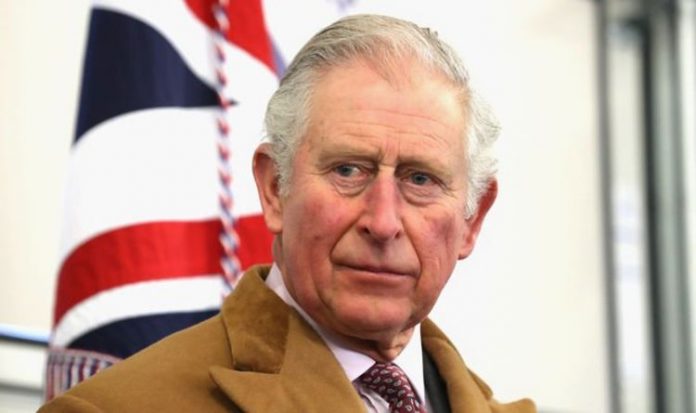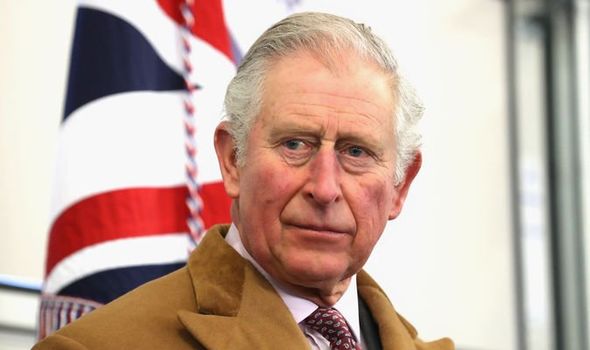
Prince Charles’ secret meeting with uncle left royal horrified (Image: Getty)
The encounter took place in a house on the outskirts of Paris, and each player in this extraordinary scene had huge expectations.
Prince Charles came to touch the mantle of a man whose impact across a worldwide empire, over the span of a quarter of a century, had never been less than electrifying. Maybe this meeting could help transform Charles from a shy and awkward adolescent, whose “forlorn clumsiness” so infuriated his father, into the global superstar his greatuncle had been at the same age.
The Duke of Windsor – once, so fleetingly, King Edward VIII – was looking for something different. Reconciliation, redemption, and rehabilitation were the things in his mind. Both were to come away bitterly disappointed.
I remember all too well that first Saturday in October 1970. Paris was warm and inviting, enjoying the last of summer. The leaves still clung to the great oaks in the Bois de Boulogne, and the women of fashion prepared their finest hats for the city’s swankiest race-day, the Prix de l’Arc de Triomphe.
In the late afternoon, a car drew up outside a huge villa on the Route du Champ D’Entraînement and out stepped Prince Charles, freshly graduated from Cambridge but still, in the love-stakes as well as in life, an apprentice. He looked forward to the meeting “with no small degree of anticipation”, he was to write later in his diary.
But his dreams were shattered the moment he entered the house. “I found footmen and pages wearing identical uniforms to the ones ours wear at home,” he wrote. “It was rather pathetic seeing that.”
Worse was to follow. The meeting had been set up by Earl Mountbatten, Charles’s “honorary grandfather” who had maintained his friendship with the Duke of Windsor even after his abdication caused the doors of Buckingham Palace to slam shut for ever.
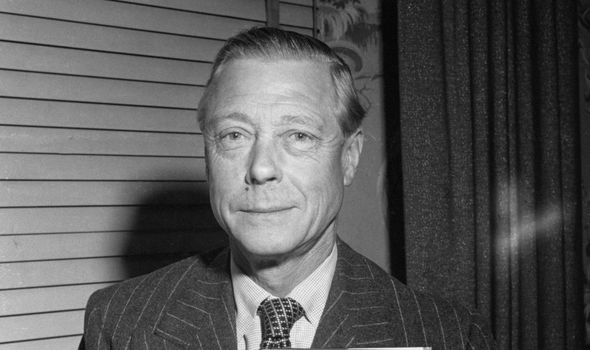
The Duke of Windsor – once, so fleetingly, King Edward VIII (Image: Getty)
David – the Duke – had made a lifelong enemy of the Queen Mother. She blamed her husband George VI’s death, at the age of 56, on the stress of a kingship foisted on him by his couldn’t-care-less elder brother.
Charles, very much under the Queen Mother’s thumb, had sounded her out in the hope she’d issue an invitation to the ageing Duke and Duchess to come for a weekend in England. For years the Duke had sought a toehold back in Britain, but every attempt was met with rebuttal. There’d been talk once upon a time of him coming home to take up an official position on the fringes of the Royal Family – but no longer. A weekend was the best he could hope for now.
Duke had a toehold Britain attempt But the feisty former with queen – no doubt with Wallis Windsor’s description of her as “that fat Scotch cook” still fresh in her mind – wouldn’t even hear of that.
And so it was in complete secrecy that Charles completed his arrangements to meet the Duke. It was to be an entirely private meeting, no publicity. The thought excited him, but he fell victim to that old adage, never meet your hero.
“The whole house reeked of some particularly strong joss sticks and the Duchess appeared from among a host of the most dreadful American guests I have ever seen,” he recalled. A cocktail party was going on in back in but every was met another room, and Charles was miffed that this historic encounter – the first ever between two Princes of Wales who were not father and son – should be squeezed in among the Windsors’ other busy social arrangements.
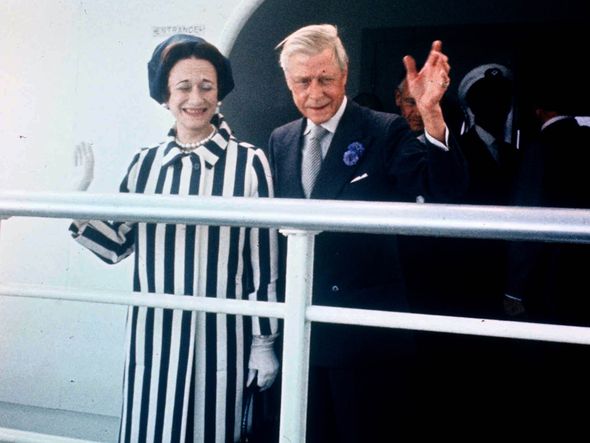
The Duchess of Windsor, born Wallis Warfield in Pennsylvania, and the Duke of Windsor (Image: Getty)
Straight away he took against Wallis. “She kept flitting to and fro like a strange bat,” he wrote. “She looks incredible for her age and obviously has her face lifted every day. Consequently she can’t really speak except by clenching her teeth all the time.”
All the “unsympathetic, superficial” Duchess could find to talk about, he noted, was which hat she’d wear at the Arc de Triomphe the next day.
The meeting, never to be repeated, ended swiftly. “The whole thing seemed so tragic – the existence, the people, the atmosphere – that I was relieved to escape it after 45 minutes and drive round Paris,” a disillusioned Charles said. Until that moment he’d talked long and often with Lord Mountbatten about finding a way of resolving the “Windsor problem”. But whatever ambitions he had to bring the Duke back to Britain – and whatever hopes the Duke harboured to end his years of exile and return home – died in those few short minutes.
As a piece of history, then, it was a failure – something to be forgotten, chucked in the wastepaper bin. But it just so happened I was in Paris that day, a young reporter on his first foreign assignment for a national newspaper. Someone whispered in my ear that Charles was in town and, given that he’d arrived without fanfare, the assumption was that, at last, he’d got himself a proper girlfriend. I was ordered to find them – but Paris is a large city with many closed doors, and I’d been given no clue as to where the prince might be. After many attempts to track him down, in desperation I called the Windsor house and spoke to the Duke’s private secretary, John Utter.
“I believe Prince Charles has been to see the Duke,” I lied. I had no idea.
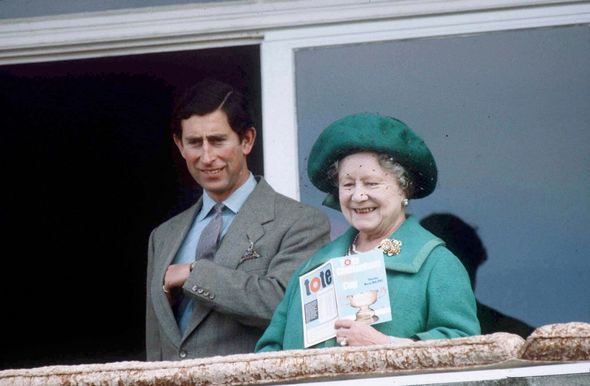
Charles didn’t want to upset the Queen Mother (Image: Getty)
To my complete surprise, Utter replied: “You’d better come round.”When I got there, the courtier revealed that Charles had, indeed, been closeted with the Duke, and that he’d left an hour earlier.
That nobody had taken notes of the meeting or even a photograph of the two men together remained a puzzle to me for years, until finally I read the extracts from Charles’s diaries recalling that strange Saturday afternoon. “One man (from the party going on next door) shook hands with me twice, muttered something incomprehensible to me in French with a strong American accent, and promptly collapsed into the arms of a strategically placed footman,” he wrote.
For Charles, I realised, the visit was supposed to be hush-hush. He didn’t want to upset the Queen Mother by meeting the man she most hated in the world, and the way he writes up the event in his diary indicates he expects others, sooner world’ or later, to read it. He wants to make sure he’s seen to be staying dutifully in the right camp. The Windsors, he’s saying, are old, a bit crazy, and consort with frightful people.
That the Windsors decided to have a cocktail party on that crucial day shows, I think, they wanted their own small world to know that the ex-King had been visited by the future King and that they were on their way back to full royal recognition.
The message would eventually spread by word of mouth without them having leaked it to the press. Private secretary John Utter’s uncharacteristic willingness to help me with the details of the meeting, in the hope it’d make the front page (it did) was an unexpected bonus. By 1970, the Duke and Duchess of Windsor were largely forgotten people – far less famous than they are today.
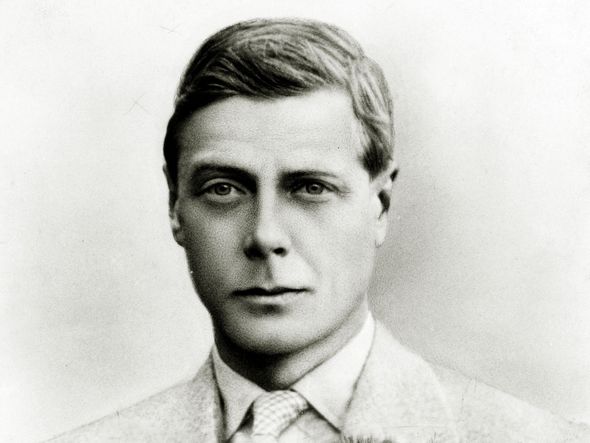
The Duke of Windsor sought reconciliation, redemption, and rehabilitation (Image: Getty)
The Duke, frail now and weakening, had a longing for home, the Duchess less so. She’d come to accept her stateless exile in Paris, and enjoyed her celebrity status among the tinselly people who were the couple’s closest friends in the French capital.
Maybe Charles glimpsed all this, and realised they were better off where they were. At any rate, no more was heard of the Windsors’ return and within two years, the Duke was dead. Perhaps Charles – whose diary entry for the day of their meeting, it has to be said, smacks of downright snobbery – looked more kindly on the sad couple once he got home.
Queen this was she most in the Less than two years later, and at his urging, the Queen came to Paris to make her peace with her uncle just before his death. This time there was no cocktail party, no drunken American falling into the arms of a footman – just the Sovereign and a very sick man who valiantly tried to stand when she entered his room, even though he was hooked up to tubes and drips and heart monitors.
Days later, the runaway king was dead. And only now was he finally allowed to return to Windsor, and to rest in peace at Frogmore, the royal burial ground.
While the Queen Mother lived, he was never going to come home alive.
